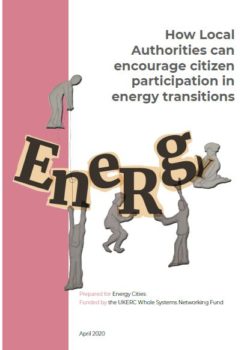How Local Authorities can encourage citizen participation in energy transitions
Including citizens in energy systems

In the field of sustainable energy (e.g. renewable energy production, energy savings, investment in local energy transition projects, etc.) as well as in the broader field of citizens’ concern for better and more sustainable quality of life (new modes of housing, mobility, lifestyles, sustainable food systems and communal wellbeing etc.), collaboration between citizen initiatives and Local Authorities plays a vital role. To succeed in reaching the goals of an energy transition, moving away from carbon emitting energy resources to renewables, everyone needs to participate in its implementation.
For everyone to participate, engagement practices are key, and Local Authorities, being the closest body of government to people, are strategically important.
The importance of citizen engagement and participation
More democratic. Citizen participation in the energy transition embodies the difference between something being imposed upon a community and something being chosen by the community to pursue themselves Ensuring that citizens are at the centre of the energy transition and are active participants and leaders of the transition is not only practically important but has ethical merits.
Raise public awareness. Citizen participation can lead to raising public awareness of a particular matter, including raising awareness of the (collective) need for action. Through participation, a more varied, informed and knowledge-based consensus can be reached.
Active governance for aiding participation
Governance has both horizontal and vertical dimensions, i.e. across governmental departments and associated bodies, and up-down through different levels of administrations, from the national to the local. Within energy transition governance practices, there appear to be a number of identifiable problems that have so far impeded or frustrated citizen participation in the energy transition and the relationship between citizens and their Local Authorities.
